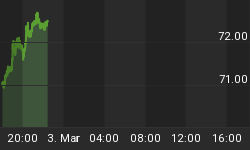The USA Today is reporting firms are cutting back on parties, gifts, and bonuses.
This year marks the first drop in companies holding holiday parties since 2001, when the weak economy and terrorist attacks caused companies to pare festivities. Even long-held traditions, such as the free company turkey, are going by the wayside: Just 2% of employers will give their employees turkeys this year, according to the Washington, D.C.-based Bureau of National Affairs (BNA).
"The findings were quite startling to us," says Dale Winston, CEO of executive search firm Battalia Winston International, whose yearly holiday survey found a decline in year-end company parties. "It is significant, and it's also probably reflective of the spirit of the country. We're at war, there's uncertainty about the economy."
• Parties. 87% of employers will have some type of holiday celebration down from the 95% who had parties last year. Only 17% of companies expect to have more expensive parties this year.
• Bonuses. In keeping with a recent trend toward basing pay on employee performance, more companies are doing away with the year-end bonus. About 60% of companies will not award them this year, according to human resources firm Hewitt Associates. "They're seeing that as a way to reduce their costs in some places," says Ken Abosch, compensation business leader at Hewitt. "Some might think employers are taking a Scrooge mentality, but they're putting it into a different form."
• Gifts. More than half of companies gave gifts in 1988, the Battalia survey found. But this year, 62% say celebrations will not include gift giving.
Hmmmm. Let's compare pictures.
Picture Number 1:
- Corporation cash coffers are extremely high
- Profits and earnings growth have been favorable
- Share buy-back announcements are extremely high
- Outsourcing continues unabated adding to corporate profits
- One time enormous windfall by repatriating cash from overseas
- CEO pay and bonuses skyrocketing
- Foreward guidance has generally been favorable
- Productivity is up
Picture Number 2:
- Corporations are not expanding their businesses
- Corporations are not really hiring compared to normal recoveries
- Corporations are being extremely stingy at sharing profits with employees
- Corporations are shifting more benefit costs to employees
These contrasting pictures are not sign of a healthy economy. Real wages are declining even while corporations are sitting on record levels of cash. The "Trickle Down" theory does not seem to be working. The fact that corporate cash coffers are so high is sign that companies do not see anything worthwhile to invest in. Overcapacity everywhere? You bet. Instead of investing cash in operations, corporations are buying back shares at bloated prices at the tail end of a three year "recovery".
76% of the GDP is directly related to consumer spending but consumers are going deeper in debt every day. Only rising asset prices on houses and stocks have kept the consumer going. Signs are everywhere that housing and autos have both peaked.
Cutbacks in corporate parties, bonuses, and gifts are still more signs of tougher times to come. It remains to be seen if consumers throw one last Christmas bash before the light go out in 2006. Recession dead ahead.
















